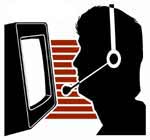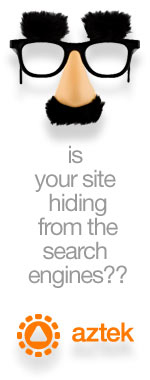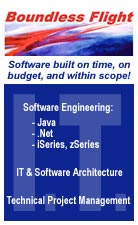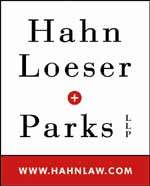In these, or any, economic times, 'free' sure sounds good. And Free and Open Source Software (FOSS) sure sounds appealing to a business. But you should think of it as 'free' as in free speech rather than 'free' as in free lunch.
Developer Joseph James Franz is a proponent of FOSS and helped organize Software Freedom Day in Cleveland in 2008. He also runs the Cleveland Web Design and Development Meetup group. This group "is comprised of a wonderful mix of very experienced designers/developers and and lots of folks who are beginners. No question is considered stupid and no method is touted as the "only" way to skin a cat. Ideas for best practices are discussed and recommendations are often made to find further information on any topic imaginable." 
Joseph James Franz at Software Freedom Day Cleveland 2008
Don't worry that you will be brainwashed into a new OS or development platform. "We are non-religious in nature. This means, that even though we all use a variety of systems, tools, programs, and methodologies, we just share our habits, we don't try to force folks into them. For instance, you will find folks at our meetups that use Windows, Mac, BSD, Linux, and other Operating Systems. Despite our individual enthusiasm for whatever OS we have chosen, you'll not find us fighting about it, just sharing. " 'Free' is a philosophy. While you can download most FOSS without cost, Frantz says, "It's not just about paying for it but about certain rights. In these days of ever tightening end user license agreements FOSS is not restricted. You can use it for any purpose that you want." Franz tells how FOSS is a unification of the pragmatic and moral concepts behind free software. The moral philosophy began with Richard Stallman, the Founder of GNU Project and Free Software Foundation. 
Richard Stallman at Comdex 2002
Business people have been trained that there is no such thing as a free lunch so the term 'open source' may be more comfortable, though Stallman rejects the term. The idea behind open source is that a developer allows others access to his source code (the program instructions that when compiled, make up a computer application) with the understanding that other developers are able and encouraged to make improvements and enhancements. Then that improved code must be released to others and the process continues.The key products of the open source movement are based on the LAMP stack. LAMP stands for Linux, Apache, MySQL and Perl/Python/ PHP. While modern distributions of Linux such as Ubuntu are much easier to run than earlier versions, most offices will continue to choose Microsoft Windows as their main operating system platform. Depending on your situation, it may be cost effective to install a free Linux system instead of purchasing additional Windows licenses. Apache is the software that runs most of the web sites on the Internet. MySQL was purchased by Sun and rivals commercial database system like Oracle which can be very expensive with charges for each CPU accessed. Franz says about FOSS, "You can use the same types of technologies that very large corporations have spent tens, hundreds, millions of dollars on. For free." The P in the LAMP stack refers to the programming languages Perl, Python and/or PHP. More common end-user FOSS applications include the Firefox web browser. On June 18, 2008 over 8 million people downloaded Firefox 3 setting a Guinness World record. Microsoft's web browser, Internet Explorer 7, has been much improved by the competition with Firefox and look for version 8 to be even better. Improvements driven by competition are another benefit of FOSS as are the large and active developer communities that produces add-ons to applications. Other useful FOSS includes OpenOffice.org 3. OpenOffice.org is a free office suite that includes a word processor, spreadsheet, presentation graphics and database. It is not as robust or feature-rich as Microsoft Office. Nor is it as easy to find books or training for OpenOffice.org as it is for the ubiquitous Microsoft Office. But it will cost you nothing (except time) to try it. Frantz likes FreeMind, a free mind mapping software. Mindmaps take a central idea and diagram words, ideas, tasks and other items around the key idea. In this podcast, Franz explains FOSS, Software Freedom Day and some opportunities for local and other developers.
October 27,2008
14,815 KB
15:48
 Listen to the podcast with Joseph James Franz. Listen to the podcast with Joseph James Franz.

Read Dan Hanson's Inside Business column on FOSS and User Groups
Top of Page | 


